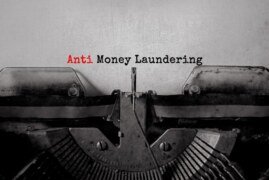In May 2018, the United Arab Emirates’ Federal Law Number 19 of 2016 on Combatting Commercial Fraud went into effect (the Anti-Fraud Law), replacing the previous Federal Law Number 4 of 1979 that addressed concealment of fraud and deception in commercial transactions (the Old Anti-Fraud Law). Since the drafting of the Anti-Fraud Law in 2013, it has been surrounded by much controversy. The United Arab Emirates has become a commercial center for trade and commerce between different countries, necessitating stricter regulations and policies to safeguard and protect the market from fraudulent and counterfeit products. The Anti-Fraud Law is therefore supposed to regulate the framework and strengthen more stringent rules in order to establish a legal system that will allow us to curb and fight fraudulent commercial activities while also providing an efficient mechanism for combatting intellectual property infringement.

The New Law’s Implementation and Enforcement
Article 2 of the New Law goes on to say that “the provisions of this legislation will be applied to any person who commits an act of commercial fraud, and the free zones are not excluded. For the first time, we have anti-fraud legislation that expressly refers to free zones. Given the ambiguity and complex processes involved in enforcing rights in free zones, these economic zones have worried IP right holders significantly.
The New Law classifies any sale, advertising, and ownership of counterfeit goods as a form of commercial fraud. The importation, exportation, re-exportation, production, storage, leasing, and selling of goods are also deemed commercial fraud under the New Law. This is another important step in explicitly regulating possession. This is especially significant in the case of free zones, as well as general re-export companies who may store fraudulent products in their warehouses. The UAE’s export and re-exports sector, particularly in Dubai, need these rules to ensure that only legitimate items are handled, which protects the reputation of the country and emirate.
The Anti-Commercial Fraud Higher Committee
The Higher Committee for Anti-Commercial Fraud, established by the New Law, is a specialized commission with broad legal and administrative powers to combat commercial fraud in the UAE. The Emirate Level Sub-Committee is also responsible for executing the duties of the Higher Committee. The Higher Committee is a significant step forward in the IP regulation of the UAE, since it provides a federal level authority to carry out enforcement. Previously, enforcement of IP rights was divided among numerous departments in each Emirate, but with the passage of this legislation, the Higher Committee is now empowered to suggest national policies to combat commercial fraud and other common problems faced by brand owners.
The Higher Committee’s responsibilities include: 1, To devise methods and regulations to prevent commercial fraud. 2, To examine reports of commercial fraud referred to it by the competent authority and make decisions as necessary. 3, To study law enforcement’s challenges and propose new legal procedures.
Article 6 outlines the duties of the sub-committees at Emirate level. These endeavors include accepting claims for conciliation from those who break the law; putting offenders on notice; ordering facility closure for a limited time; overseeing destruction operations; and recycling or re-exporting infringing items
Counterfeit Goods
The IP industry fought the original proposal, which was submitted in 2013 and heavily discussed. There was significant concern over remedies in the initial draft of the legislation, with one option being to re-export counterfeit products as a form of punishment. This was a concern raised by IP attorneys, who opined that some offenders would see this as a prize rather than a punishment. Fortunately, the UAE’s legislation has been amended to remove this provision, and the New Law specifically specifies the destruction of counterfeit goods as a remedy. The New Law’s Article 3 reads: “Without prejudice to criminal liability, the competent authority may issue a decision requiring the importer to return fraudulent or spoiled products to their source for a specified period of time. Counterfeit goods will be destroyed, and all of this is subject to the provisions set out in this law’s implementing regulation. “The difference between genuine/spoiled products and counterfeit items is described in the piece. The UAE’s significant focus on combating fraud demonstrates how vital the UAE’s role is on a global scale in preventing counterfeit goods from spreading from one nation to another.
Information related go goods
Existing laws did not require the sharing of information. However, under the New Law (article 4), a trader is required to submit all commercial books and ledgers, as well as information on value and all supporting documentation and bills, when requested to do so by a competent authority. This is critical for all brand owners who want to investigate further in order to identify the counterfeit industry’s supply chain and assist with filing civil actions against the infringer. Because of a lack of evidence to support the claim for compensation, civil claims are generally not pursued because of this new right to obtain information.
Penalties imposed by the Law
The Law’s requirement that heavy penalties be imposed on offenders, which is a welcome improvement over the Old Anti-Fraud Law, is required to deter criminals and prevent commercial frauds. The Anti-Fraud Act of 1991 established a penalty of two years’ imprisonment and AED10,000 (UAE Dirham ten thousand) fine for cheating a consumer by delivering items that are not as advertised. Article 12 of the Law, on the other hand, mandates a more severe penalty for offenders, such as imprisonment for almost two years or a fine ranging from UAE Dirham 50,000 to UAE Dirham 250,000 or both. Anyone who attempts to engage in a fraudulent business activity under the Law shall be sentenced to one year’s imprisonment or a fine of between AED10,000 and AED100,000, or both.
Article 14 is the only exception, imposing a penalty of imprisonment for a term of up to two years or a fine of AED 250,000 to AED 1,000,000 or both if the fraud or crime relates to human foods, animal foods, medical medications, agricultural crops or organic items. Furthermore, in the case of a conviction for any of the offenses described in Article 14 above, the court shall impose a six-month closure on the accused and provide for corresponding penalties. In addition, in the case of a recurrence of such infractions, the court has the option to impose more severe punishment or cancel the license.
The Law places a stringent duty on the offender/violator, according to Article 16, which states that the trader shall not be excused from any punishment prescribed by the Law even if the buyer is aware that the products are fraudulent, corrupt, or counterfeit.
Bottom line
The Anti-Fraud Law is another important reform that complements the UAE’s more recent legal environment. This legislation has made steps toward building a solid legal framework to safeguard and protect the rights of registered brand owners and real businesses. While the Anti-Fraud Law is a good step forward, it is still in its infancy, and the framework’s success will be highly reliant on the Higher Committee and sub-committee’s ability to function smoothly and how effectively the administrative processes assigned to them are carried out. Importantly, once the implementing regulations go into effect, the regulatory framework and policies will be more apparent. Anyhow, the harsh penalties given for will act as a deterrent to commercial frauds and felonies, and they will fill in the gap left by the Old Anti-Fraud Law, which was an ineffective means of combating intellectual property crimes and other commercial frauds.



